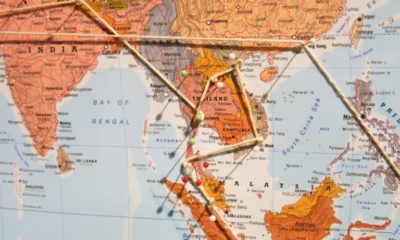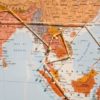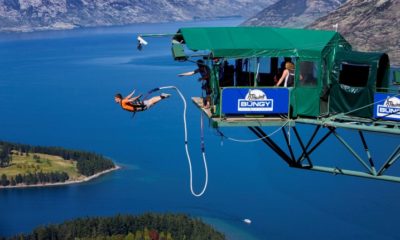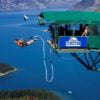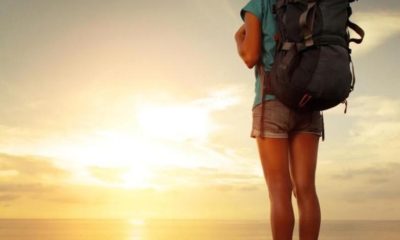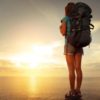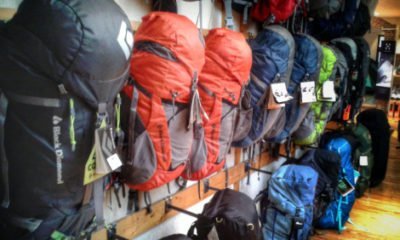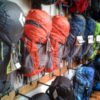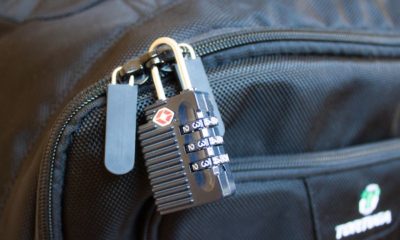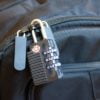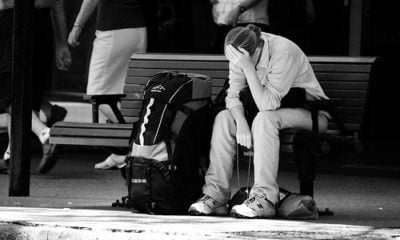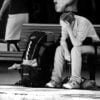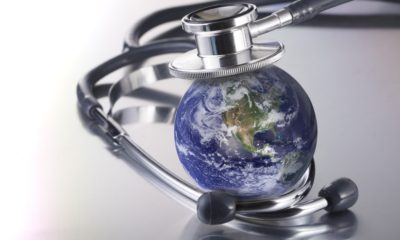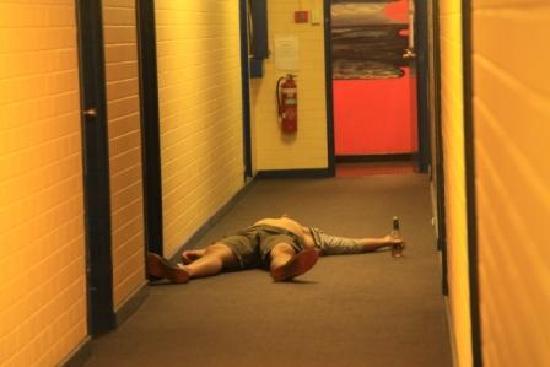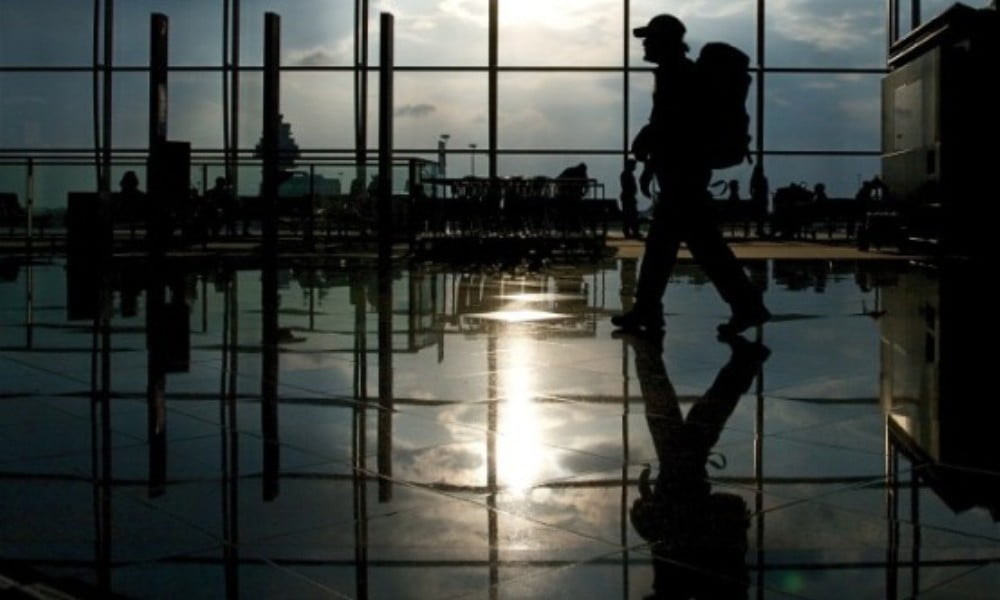Advice
Travel Packing List: What To Take Backpacking Around The World
How much you pack depends entirely on your backpack, but the advice you will hear across the board is don’t pack too much.
What to pack for your 3 month long backpacking trip to Asia, or gap year around Europe, is likely going to be very different from your standard holiday packing checklist.
Therefore below I’ve created a detailed packing list, with some packing tricks and tips I’ve picked up over the years further down.
However if you want a more concise list of the essential gear to take or the last minute things you may have forgotten to pack, try our more digestible 20 Things You Need To Take Travelling.
Ultimate Travel Packing List
When looking at online packing lists before I went, there seemed to be many things I was unsure would be relevant to me or not.
Therefore I have split the list into 3 sections;
- things everyone should pack
- stuff you can pack if you have room or want to
- and items you might have to pack in certain places or scenarios.
Should Pack
Should Pack Clothing
- 3-7 t-shirts/ tops – more means less washing – in the tropics they smell bad pretty quickly – but remember the extra weight.
- 1-3 shorts/ skirts/ bottoms – depending on climate of your destinations.
- Underwear and socks – if you think you will be wearing flips flops all the time, take less socks. Again try to balance how often you want to wash them, with how heavy you want your bag to be.
- Swimwear
- Microfibre travel towel – perfect for backpackers. They fold up into virtually nothing, weigh very little and dry super quick.
- 1-3 jumpers/ sweaters – depending on the climate of your destinations (maybe a fleece or coat for some of the colder places).
- Travel or Walking Trousers – you’ll be doing a lot of walking, so a comfortable pair of trousers/pants is a must. Try to get a pair with multiple zip pockets to keep personal belongings safe.
- Flip Flops or Sliders
- Everyday comfortable shoes, i.e. trainers/sneakers
- Sunglasses
- Hat – sun and/or woolly hat (depending on where you are going.)
- Lightweight rainjacket (ideally a mac in a pack)
Should Pack Toiletries
- Toiletry/Wash Bag – one with a hook is very useful.
- Suncream
- Travel Grooming Set i.e. nail clippers, scissors, tweezers, mirror, file.
- Shaving gear
- Body Wash
- Shampoo and Conditioner
- Deodorant
- Manual toothbrush
- Toothpaste
Should Pack Items
- Mobile Phone
- Wallet/ Purse – containing local currency, home credit/ debit card, prepaid currency card (or Revolut/Monzo type card), ID.
- Camera & SD cards – sometimes your phone just won’t cut it, i.e. long distance, action or underwater shots. Read here for more about cameras.
- Chargers (for Camera, Phone, Laptop, Appliances, etc).
- Worldwide Power Adapter
- Power Bank – you never know where your nearest power source will be
- Watch – you constantly need to know the time. A cheap, rugged watch saves you taking your valuable, breakable phone out of your pocket all the time.
- Earphones – don’t take headphones, they are too bulky.
- Travel Wash – for when you need to quickly wash a pair of socks or get out a stain.
- Earplugs – I can’t sleep in hostels without them. People come in and out of dorms at all hours and there are always snorers.
- Head Torch – great for using in dorms after dark without annoying everyone else, or for use when camping.
- Water Bottle
- Locks – For your bag, but also lots of hostels provide free lockers or safe boxes if you have your own lock. Avoid locks with a key (which can be lost easily – one guy I met locked his key in a locker), go for the ones with a number combination.
Should Pack Medical
- First Aid Kit – should contain at least plasters, bandages, anti-septic cream, burn treatment gel and wound closure strips.
- Paracetamol, Aspirin or Ibuprofen
- Diarrhoea tablets – a must in the developing world.
- Anti-septic cream
Should Pack Documentation
Most documentation is digital these days, but some less developed countries do require paper versions still. Plus it is very easy to lose your phone or run out of battery, so it’s good to have paper backups.
- Document Wallet/ Folder
- Passport
- Insurance Paperwork
- Tickets or Confirmations (flights, buses, tours, etc)
- Visa Paperwork
- Emergency numbers
- Embassy Addresses
- Immunisation record
- Spare passport photos – can be needed when applying for visas.
- Photocopies of documents – give one set to your parents or close friend and take another set with you – check here to confirm which documentation needs photocopying.
Can Pack
Can Pack Clothing
- Jeans – do not take if only going to hot countries.
- Thermal under clothing – Worth packing for me if you are travelling anywhere outside of the tropical regions, or not in the summer time. Very light weight and take up very little space, plus can keep you warm if it gets a little chilly.
- Belt
- Long sleeved shirts – can be used as effective protection from insect bites on your arms in the evenings.
- Smarter shoes – only if you think you might want to go out anywhere more fancy.
- Hiking boots – these take up a lot of weight and space, so only recommended if you know you will be doing multiple treks on challenging terrain. You could use as your everyday shoes though.
- Sarong
- Dresses – as a substitute to a top and bottoms.
Can Pack Toiletries
- Hair products/ Brush/ Comb
- After sun lotion
- Wet wipes
- Dental floss
- Moisturiser
- Multi vitamin tablets
- Vaseline
- Cologne/ Perfume (transfer it to a plastic bottle – glass breaks easily)
- Makeup – recommended to just take the essentials, not the full bag.
- Shower puff/ sponge
- Hand Sanitiser
- Lip Balm
- Tissues
- Contraception/ Condoms
Can Pack Items
- Sleeping bag liner – if you think you may be staying in some grubby hostels or renting sleeping bags.
- Travel Hair Dryer (or other appliances) – tend to break easily and take up a lot of space.
- Travel Pillow – can be bulky, so only recommended if you know you will use it.
- Backpack rain cover – or just run to shelter.
- Rehydration tablets
- Tupperware – bulky, but can help you save you a lot of money when cooking food in developed countries.
- Plastic bags or packing cubes – good for separating things in your bag, or for dirty laundry or shoes.
- Laptop/ Tablet – can probably get by with just your phone. Only recommended if you plan on using for work.
- USB Stick/ Hard Drive – good for backing up photos and documentation, and storing movies, etc too.
- Discount/ youth cards
- Sewing Kit, Duct Tape, String or Super Glue – great for fixing things, taking at least one may be a good idea. Very easy to buy on the road though.
- Compression bags – put your clothes in them and they squeeze out all the trapped air, saving you space.
- Notepad & Pen – for writing down addresses, travel ideas, etc.
- Diary – great for memories and taking up time on long bus rides.
- Pen Knife – I never used mine, but you never know.
- USB extension cable – so your phone can reach your bed.
- Plug extension/ multiplier – plug sockets are always in short supply, having one of these could make you very popular.
- Personal (Rape) Alarm
- Money Belt – these are a bit outdated now, most thieves know people wear them, and with cards widely accepted worldwide now you should never have too much cash on you. They don’t look too cool when trying to make friends either.
Might Have To Pack
Might Have To Pack Clothing
- Beach Towel – if going anywhere with beaches. Can also be used instead of travel towel when staying in a place for a long time.
- Winter clothing – destination specific. You may need to think much more carefully about the clothes you are packing if you are going to be travelling for long periods in cold climates.
- Job/work related clothing
Might Have To Pack Medical/ Toiletries
- Female Sanitary Items
- Face masks – check if your destinations require any COVID prevention measures.
- Malaria tablets
- Insect Repellent (with high DEET %) – must pack for Asia, Latin America and Africa (malaria hotspots).
- Water purification tablets/ bottle – if you might not have access to bottled, boiled or clean water. I’ve never personally required.
- Allergy Tablets
- Glasses / Contact lenses / Eyedrops
- Prescriptions/ Medications – check your bathroom cabinet for anything you might need.
- Toilet Paper – some developing countries may not have toilet paper provided, particularly in public toilets.
Might Have To Pack Items
- Camping Gear – if planning on camping for long periods of time only. Most camping or hiking gear can be rented.
- Binoculars – a must take if planning on going on any wildlife spotting trips.
- Job related documentation
- International Drivers License
There are probably plenty of things not on the above packing list or any other list you have read. I would highly advise you check out multiple travel packing lists, as different people, pack different things.
- If you think you are going to use something often, then take it.
- If you think “that may come in handy”, then you probably won’t need it.
- If it is large or heavy, you need to seriously think about leaving it behind.
How Much To Pack
How much you pack depends entirely on your backpack, but the advice you will hear across the board is don’t pack too much.
Read here for our Guide To Choosing The Best Backpack For Travelling.
I was a bit concerned when I first started reading gap year packing lists. I really didn’t think I could cope with so few items for a long overseas trip, and it seemed I would be washing clothes for most of my time.
Once you get into the swing of things however, you realise you really don’t need much at all. You even start throwing things away because its weighing you down too much.
“every gram counts”
You really need to find the ideal weight for you, which does come with a bit of experience. For me weighing 70kg, I found 15kg for my main pack and 4kg additional weight in my day pack to be the perfect weight. Don’t think the perfect weight is the peak of what you can handle – I can run for a train with 19kg on my back comfortably and walk for half an hour without pain, but even with just 1kg more I struggle. Somewhere between 10kg and 20kg for your main pack and 3 to 8kg for your day pack is the key – anything over 23kg total you are going to have a bad time and really need to start unpacking things.
The weight also depends on the countries you are visiting. Pack less in developing countries as there are very few lifts, escalators, transport links or well maintained footpaths – this means you will be carrying your bag a lot more.
Other Reasons To Pack Light…
- Rushing. You will constantly be rushing to catch transport or to get the last bed in a hostel. You will get there a lot quicker without the weight on your back.
- Less things to lose or have stolen. Read more about Keeping your Belongings Secure when Travelling
- Easier to find things in your backpack.
- Sweating. Walking around a hot, humid city like Bangkok is bad enough when carrying nothing. You will really notice every kilogram in your pack, usually in relation to how many litres you are sweating out.
What Not To Take & Reducing Weight
When packing clothes, keep in mind you can always buy things when you get there. If you find you could really do with an extra t-shirt, you can buy one a lot cheaper than back home at a local market.
Also remember, no one will judge you on what you are wearing when you are travelling, you probably won’t be with the same people for more than a few days anyway. So don’t worry about wearing the same clothes for a few days in a row, or having a small stain.
“Backpacking is the art of knowing what not to take.”
Shoes are one of the biggest problems – each pair adds a lot of extra weight and can take up a lot of space in your backpack. For me you only need one very good pair of comfortable, everyday shoes, that you wear rather than pack, and one pair of flip flops/sliders. You can possibly take one other style of shoe too, maybe for a specific purpose – i.e. a smarter pair for going out, or hiking boots. My advice though would be to leave extra pairs behind unless you are sure you will use them, as it is much easier to buy a new pair on the road when the need arises, than to say carry around a pair a hiking boots that you don’t use for your first 3 months of travelling.
“When preparing to travel, lay out all your clothes and all your money. Then take half the clothes and twice the money.” – Susan Heller
Avoid taking cases or packaging. When I first went travelling I brought a lot of new things and kept them in the case they came with, like sunglasses and camera. You find out you never put them back in the case because you are always using them, so you end up having these boxes of air in your bag, taking up valuable space.
Books! Everyone buys a Lonely Planet before they go, but leave it at home. They are great, but they are so heavy. Better travel information can be found online and the best travel advice of all is from your fellow backpackers. If you are a keen reader, download books to your tablet, phone or kindle.
The same goes with a lot of things these days – you can put everything on your phone or tablet. So if you have any of the following on your packing list, take them off; maps, phrasebooks, games, even a camera – just use your phone.
Laptop or not is a very big question for some people. If you are intending on undertaking serious work a laptop is a very good thing to take for finding jobs, updating CVs, etc. Though if you just want to browse the internet, call your parents and post a few pictures to Instagram there is no need; just take your tablet or phone. My advice is only to take a laptop if you know you will need it for work.
Unless you intend on camping a lot, there is no need to bring camping gear such as sleeping bags or bed rolls. Tours that involve camping will usually provide all equipment or it can be cheaply rented. If you rent or buy a campervan, equipment is usually thrown in.
Most things can be rented, which is usually a better option for bulky things that you only use on occasions, for example hiking poles.
I recommend avoiding travel appliances like hairdryers, they are usually available in most hostels. Most of these appliances (even travel versions) aren’t meant to be lugged for 3 months in a backpack so often break anyway.
Guitars. It always baffles me seeing people trying to carry a guitar whilst hauling 20kgs on their back – you can see the regret etched on their faces. A vast amount of hostels have guitars available, often free to use.
A huge balancing act in packing is your toiletries. You can pack big bottles so you buy them less frequently – the bigger versions tend to be cheaper as well – but remember every gram counts. If you think your pack is too heavy then this is the place to start trimming by packing smaller bottles, A good idea is to get a 2 or 3 in 1 bottle of body wash, shampoo, and conditioner. Many leave their makeup bag at home as well and rock the natural look – it saves a lot of weight.
How To Pack And Live Out Of Your Backpack
How to pack and prepare your backpack is obviously going to be very specific to your bag and belongings. With experience you will know exactly how you like it packed, but here are some general tips:
- Items you use regularly should be near to top – such as clean tops, underwear and toothbrush. I now take two separate toiletry bags – one for everyday stuff, like toothpaste/ brush, body wash and shampoo, that I place right at the very top of my bag. The other is for less frequent items such as my razor, after sun, etc. which is placed further down.
- Things you may need in an hurry should be in designated compartments – i.e. first aid kit or rainjacket.
- Keep similar stuff together in an assigned compartment or bag so you know where to find them, i.e. electrical equipment (chargers, adapters). Packing cubes are really useful in helping you do this.
- If your backpack doesn’t have a dirty washing compartment, make sure to take large plastic bags to put them in otherwise your whole bag will smell.
- Your daypack should usually contain, water, suncream, first aid kit, etc. However be aware most of these items cannot be taken on flights, so you may have to keep changing what is in there.
- Roll rather than fold. To avoid creases roll your clothes from the base. Rolling also keeps you bag tidy, and makes it easier to find/reach the item of clothing you’re looking for.
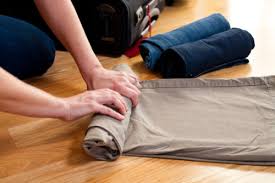
- Think of packing like Tetris. Try to minimise empty space; fill those empty spaces with small or flexible items such as socks.
Read more here about How to Be a Backpacker
Enjoy your packing…and don’t forget to pack these essentials
I'm Craig, creator of Backpacker Advice. I love discussing my travels. My goal is to inspire people to just go and see the world and live your life, along with giving practical advice and tips for backpackers.


